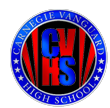
-
Welcome to Pre-AP English II! We will continue the development of writing skills started in
English I, focusing on writing a wide variety of papers, emphasizing critical analysis and careful attention to language. Grammar and punctuation skills are refined through written work. This year will be packed full of literature and writing, so be prepared to read some great plays, novels, essays, and articles. Through an integrated approach to the study of composition, literature, and usage, you will gain a better understanding of yourself and your relationships with others. In addition, you will be introduced to the concepts needed to succeed in advanced placement English courses.
You will be expected to always put forth your best efforts. Therefore, you need to come to class with your assignments read and homework done, ready to discuss your opinions with classmates. By the end of the course, you will have gained new reading skills, new writing skills, and new vocabulary to apply to both. You will be an expert at various strategies to tackle fiction and non-fiction alike, and you will be ready for AP Language and Composition test next year.
Your success in this course is not simply defined by the grade you receive every cycle. It is defined by how much you are pushing yourself to learn new things, so you may grow as a thinker, reader, speaker, and writer. It is about being reflective about your learning, adjusting, and authentically doing the work. The student who takes this approach to their learning will undoubtedly come out stronger and will have shown more growth and progress than the student who is only concerned with letter grades.
You will be pushed harder and further than you ever have been before and be stronger for it. Yet, you will not be alone. We will reach our goals as a team. This will be a year of survival and success for all of us. It is expected that you will behave with complete respect for yourself and your peers. It is only with a positive attitude that our work can be accomplished. We will make mistakes along the way (and mistakes are a necessary step in the learning process); however, we must learn from those mistakes and grow from them. I will forgive your mistakes and I hope you’ll forgive mine.
The main goals for this class are:
- Write in a variety of forms including the three AP modes: synthesis, rhetorical analysis, and argument.
- Use conventions and mechanics of written English, including the rules of grammar and usage, to write clearly and effectively.
- Acquire an extensive vocabulary through reading and systematic word study.
- Read extensively and intensively for different purposes in diverse selections using a variety of strategies.
- Analyze elements for their contributions to meaning in literary texts and express and support responses to various types of texts.
- Listen attentively for a variety of purposes.
- Analyze and evaluate oral performances and presentations.
- Speak clearly and effectively for a variety of purposes and audiences.
Homework: The daily average for homework will be 30-45 minutes. Students are often assigned reading or long-term projects that require them to plan their time carefully so that they are not overwhelmed by deadlines. Developing self-discipline in the areas of time management is a goal of this advanced class. Homework is always due before the start of school on the due date and submitted as instructed.
Grading: Students will be evaluated on their analysis of a variety of literature, poetry, and non-fiction. Students will compose original essays (written both in and out of class), participate in literature-based assessments, and create original and creative individual and group projects in order to demonstrate their connection to the literature. Plagiarism, like other types of cheating, results in a 0 for the assignment and notification to the office. Plagiarism includes using any or all portions of someone else’s work, including papers found on the internet and using AI.
- 50% Major Grades: tests, projects, presentations, major writing assignments, etc.
- 25% Minor Grades (Usually In-Class Work): AP MC quizzes, lit activities, etc.
- 15% Homework: Online discussions, vocabulary activities, grammar, etc.
- 10% Academic Skills: timely work, active participation, creative & thinking risks.
Late Work Policy:
One-day late work policy with a maximum deduction of 30 points.
- School days, not calendar days
- Zeros may be issued following the one-day period
- This would be the minimum requirement. Teachers may implement a more lenient policy. Courses that are shared among more than one teacher must have the same late work policy.
- Should an emergent situation occur which makes you unable to meet the deadline, please reach out BEFORE the deadline passes. Plans need to be made BEFORE the deadline so they’re in place with enough time for you to finish the work and for me to accurately score the assignment. Failure to reach out to me prior to the deadline constitutes an understanding of the original due date and your ability to meet that deadline. Additionally, feedback may not be as detailed as it might otherwise be due to time constraints.
- The late work policy does not apply to assignments that are assigned and due within the same class period.
Tutorials:
Tutorials are available by appointment and are available before school, Tuesday through Thursday. I’m always happy to meet with you to discuss any of the work we’re doing in class, as well as go over grades. But I will NOT discuss grading rationales with you during class. General conversations about class-wide trends will be discussed during the class period, but if there is more you’d like to discuss, or a specific concern you have, I want to ensure you have my full attention, and the best way to do that is to have a quick meeting.
Texts for Pre-AP English 2:
Bless Me, Ultima
Antigone/Medea
The Picture of Dorian Gray
Shakespeare’s Julius Caesar
This list is subject to change and/or additions. You also will be asked to choose additional reading.
REQUIRED MEMBERSHIPS
There are several websites or programs that we will use repeatedly this year. Please join the following: www.turnitin.com, www.quill.org, www.vocabulary.com, and www.myap.collegeboard.org.
Period
Turnitin Class ID
Turnitin Enrollment key
Quill.org code
Vocab.com code
myap.collegeboard.com join code
P 1
TBD
Batman
fabric-hose
https://vocab.com/join/TQA09K
LWJGAV
P 2
TBD
Wolverine
monday-yodel
https://vocab.com/join/35DC3V
AV223A
P 4
TBD
Doctor
Intern-arena
https://vocab.com/join/4HGJPK4
679M2R
P 5
TBD
Kenobi
harmony-spinach
https://vocab.com/join/45RRGVR
6MJVWR
P 6
TBD
TARDIS
Imagery-ballot
https://vocab.com/join/3FTM09F
PG96L7
P 7
TBD
Yoda
spa-jewelry
https://vocab.com/join/EH7MKX
2N4QR3
HISD Canvas: All materials, resources, and assignments (or links to them) will be posted and consolidated on our class page. Please check this regularly.
We are working towards:
AP LANGUAGE skills and objectives:
- Rhetorical Situation –Reading: Explain how writers’ choices reflect the components of the rhetorical situation (exigence, audience, writer, purpose, content, message)
- Rhetorical Situation –Writing: Make strategic choices in a text to address a rhetorical situation (introductions, conclusions, audience's values)
- Claims and Evidence –Reading: Identify and describe the claims and evidence of an argument. (claims, evidence, thesis, qualifications, counterarguments, etc.)
- Claims and Evidence –Writing: Analyze and select evidence to develop and refine a claim (paragraphs with claims, evidence: defensible thesis, counterarguments)
- Reasoning and Organization –Reading: Describe the reasoning, organization, and development of an argument (line of reasoning, organization of text)
- Reasoning and Organization –Writing: Use organization and commentary to illuminate the line of reasoning in an argument (transitional elements, development)
- Style –Reading: Explain how writers’ stylistic choices contribute to the purpose of an argument (diction to create tone, syntax for organization, grammar for clarity)
- Style –Writing: Select words and use elements of composition to advance an argument (create tone/voice; clarity and concision, standard usage and mechanics)
AP LITERATURE skills and objectives:
- Explain the function of character (perspective, changeability, foils, nuances, and complexities)
- Explain the function of setting (textual details, character, and setting)
- Explain the function of plot and structure (sequence of events, structure, significance of events, conflict)
- Explain the function of the narrator or speaker (point of view, detail, diction, syntax, reliability)
- Explain the function of word choice, imagery, and symbols (literal, figurative)
- Explain the function of comparison (similes, metaphors, personification, allusions)
- Develop textually substantiated arguments about interpretations of part or all of a text (claim, evidence, thesis, commentary, control of language)







